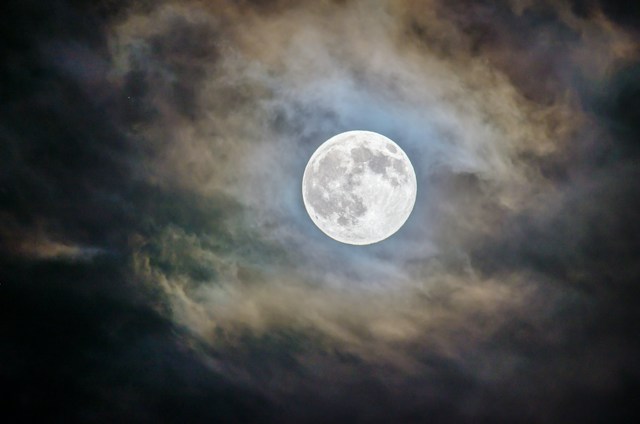Are We Affected by the Moon?

Historically, it was believed that the moon had a powerful influence on human behavior. Even the term lunacy comes from the Latin word for moon: luna. Generally, it was thought that the full moon had a negative impact on human behavior. However, with the advent of modern science, numerous large scale analyses of patients and the lunar cycle failed to find any correlations between behavior and the lunar phase (Owen 1998, Biermann 2005, Bierman 2009, Foster 2008, Rotton 1985).
And yet the idea that the moon influences human physiology and behavior is still firmly entrenched. While some authors have argued that there are no physiological effects, the moon clearly has a powerful effect on the planet itself. The tides are the most dramatic example. And numerous organisms have been shown to be influenced by the moon (Zimecki 2006, Chakraborty 2018). It shouldn’t seem like a large stretch to assume the moon has some influence on human physiology.
Menstrual Cycles and Lunar Effects
Probably the most well known synchronization between the moon and humans is the correlation between the female menstrual cycle and the lunar phase. One analysis of over 35,000 women found a small but significant link between the phase of the moon and the timing of the menstrual cycle (Ecochard 2024). A separate article following a smaller group of women’s cycles for approximately 15 years also found consistent correlations with the lunar cycle, although the relationship can easily be broken by exposure to artificial light (Helfrich-Förster 2021). They also found the relationship to decrease as women age.
Sleep Cycles and Lunar Effects
Melatonin is a sleep hormone, produced most strongly at night in the dark. Since light reduces melatonin production and the full moon gives off light, it should not come as a huge surprise that the lunar phase also influences the sleep cycle. A recent study in children confirmed the association with melatonin levels being higher during the new moon as opposed to the full moon (Hartstein 2023). One study of over 500 women found a complicated relationship between sleep quality, the menstrual cycle and the phase of the moon (Komada 2021).
A separate study in individuals from indigenous communities looked at the relationship between differing levels of access to artificial light, electricity, lunar phase and sleep. Both the duration and onset of sleep were affected by the phase of the moon, even in those with exposure to artificial lighting (Casiraghi 2021).
Bipolar Disorder and Lunar Effects
Bipolar disorder is a condition where individuals swing between phases of mania and depression. An individual who is manic will usually have very high energy, they talk fast and need little sleep. They often have grandiose ideas and will engage in risky behaviors due to a sense of invulnerability.
Bipolar disorder is well known to have strong correlations with disruptions in the normal sleep-wake cycle (McCarthy 2022). As such, it should come as no surprise that the lunar cycle has been shown to correlate with mood cycles in bipolar patients. In a study from 2017, historical reports from 17 patients provided a combined total of 38 years of data documenting their mood cycles (Wehr 2017). Of note, the coupling between mood cycles and lunar phase was somewhat complex, with manic episodes occurring every second, third, fourth or sixth lunar tidal cycle. Over time, some patients would shift to a different multiple, but then at times would shift back to the original coupling. Although not proven, the correlations were so strong that the researchers made an argument that it appeared plausible that the lunar cycle was directly causing the changes in mood.
Based on the data, a separate research group analyzed the data of a bipolar woman with hypothyroidism (Avery 2019). Before thyroid treatment, her mood cycles were periodic, correlating with the phases of the moon. She was then treated with bright-light therapy and thyroid hormone and the relationship between her mood and the lunar phase was broken. The authors suggest that different treatments and thyroid function need to be taken into account when assessing a patients’ mood cycles in relationship to the lunar cycle.
Even more recently, a research group followed a bipolar patient over 3.3 years, tracking mood, anxiety, irritability and sleep (Burgess 2021). The study found clear associations between the lunar cycle, mental health parameters and sleep duration. In general, mood was better around the full moon with less sleep, whereas mood worsened around the new moon with increased sleep. The study is available online, with the graph on page 642 showing the dramatic correlation of mood with the lunar phase.
Conclusion
Based on the data, one research group concluded that there still appears to be potential for an effect of the moon on human behavior (Wehr 2021). The old meta-analyses are likely flawed by assuming too simplistic of an approach. For example, looking for a simple association between negative behavior and the full moon. When single individuals are tracked over a longer period of time, the complicated relationship between lunar phase and behavior often becomes much more obvious. By taking into account the complexities of the potential relationship, hopefully we can better understand the nature of the moon’s effects on mental health and human physiology. A better understanding of the relationship may also open up additional avenues for mental health treatment.



